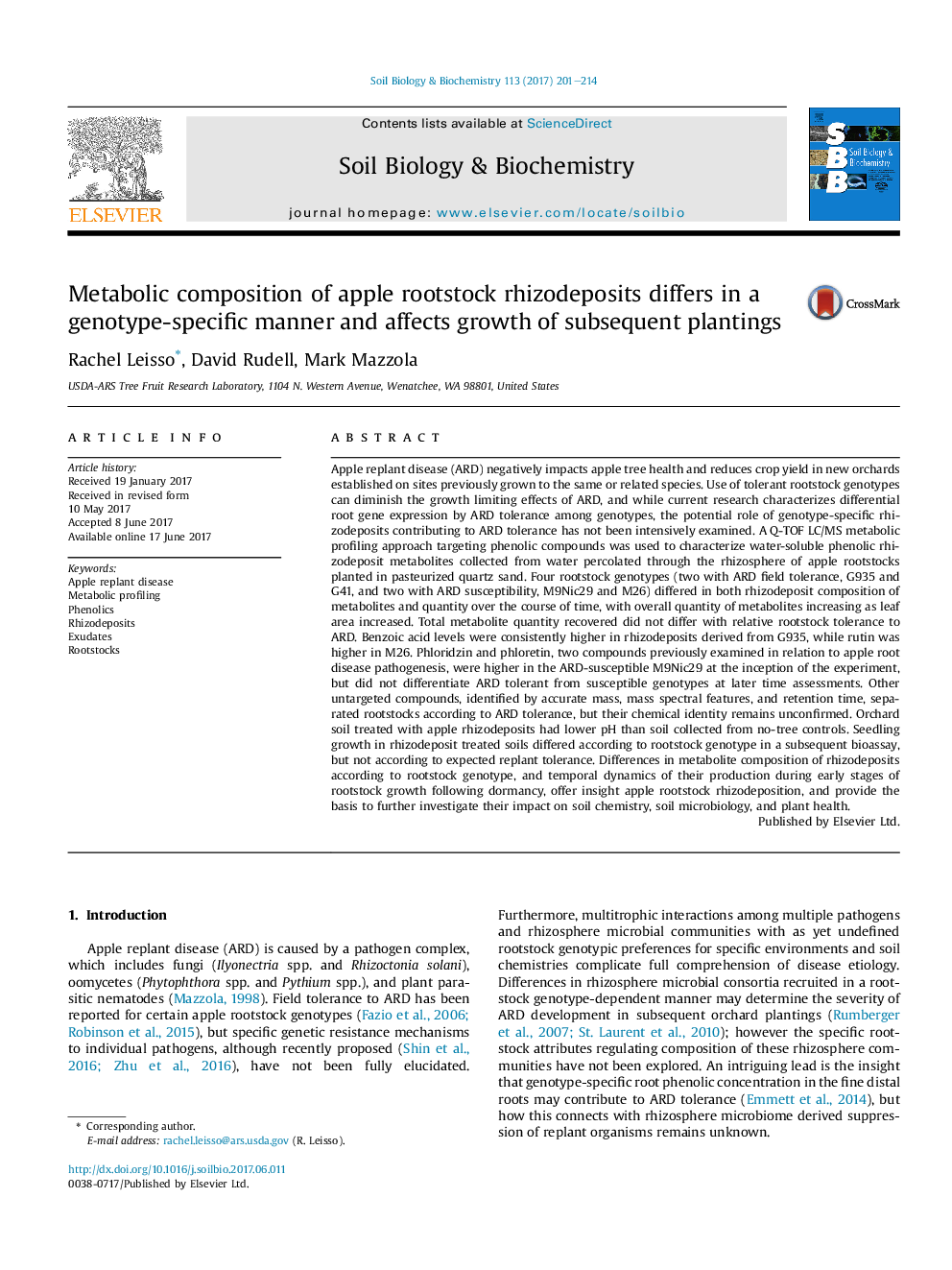| کد مقاله | کد نشریه | سال انتشار | مقاله انگلیسی | نسخه تمام متن |
|---|---|---|---|---|
| 5516382 | 1542571 | 2017 | 14 صفحه PDF | دانلود رایگان |
- Apple rootstock rhizodeposits, including targeted phenolics, differ among genotypes.
- Major metabolic profile features were similar within ARD field tolerant genotypes.
- Soil pH and tree growth in rhizodeposit-treated soil differed among genotypes.
- In addition to genotype, environmental conditions influenced rhizodeposit profiles.
Apple replant disease (ARD) negatively impacts apple tree health and reduces crop yield in new orchards established on sites previously grown to the same or related species. Use of tolerant rootstock genotypes can diminish the growth limiting effects of ARD, and while current research characterizes differential root gene expression by ARD tolerance among genotypes, the potential role of genotype-specific rhizodeposits contributing to ARD tolerance has not been intensively examined. A Q-TOF LC/MS metabolic profiling approach targeting phenolic compounds was used to characterize water-soluble phenolic rhizodeposit metabolites collected from water percolated through the rhizosphere of apple rootstocks planted in pasteurized quartz sand. Four rootstock genotypes (two with ARD field tolerance, G935 and G41, and two with ARD susceptibility, M9Nic29 and M26) differed in both rhizodeposit composition of metabolites and quantity over the course of time, with overall quantity of metabolites increasing as leaf area increased. Total metabolite quantity recovered did not differ with relative rootstock tolerance to ARD. Benzoic acid levels were consistently higher in rhizodeposits derived from G935, while rutin was higher in M26. Phloridzin and phloretin, two compounds previously examined in relation to apple root disease pathogenesis, were higher in the ARD-susceptible M9Nic29Â at the inception of the experiment, but did not differentiate ARD tolerant from susceptible genotypes at later time assessments. Other untargeted compounds, identified by accurate mass, mass spectral features, and retention time, separated rootstocks according to ARD tolerance, but their chemical identity remains unconfirmed. Orchard soil treated with apple rhizodeposits had lower pH than soil collected from no-tree controls. Seedling growth in rhizodeposit treated soils differed according to rootstock genotype in a subsequent bioassay, but not according to expected replant tolerance. Differences in metabolite composition of rhizodeposits according to rootstock genotype, and temporal dynamics of their production during early stages of rootstock growth following dormancy, offer insight apple rootstock rhizodeposition, and provide the basis to further investigate their impact on soil chemistry, soil microbiology, and plant health.
Journal: Soil Biology and Biochemistry - Volume 113, October 2017, Pages 201-214
